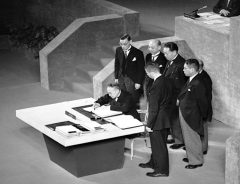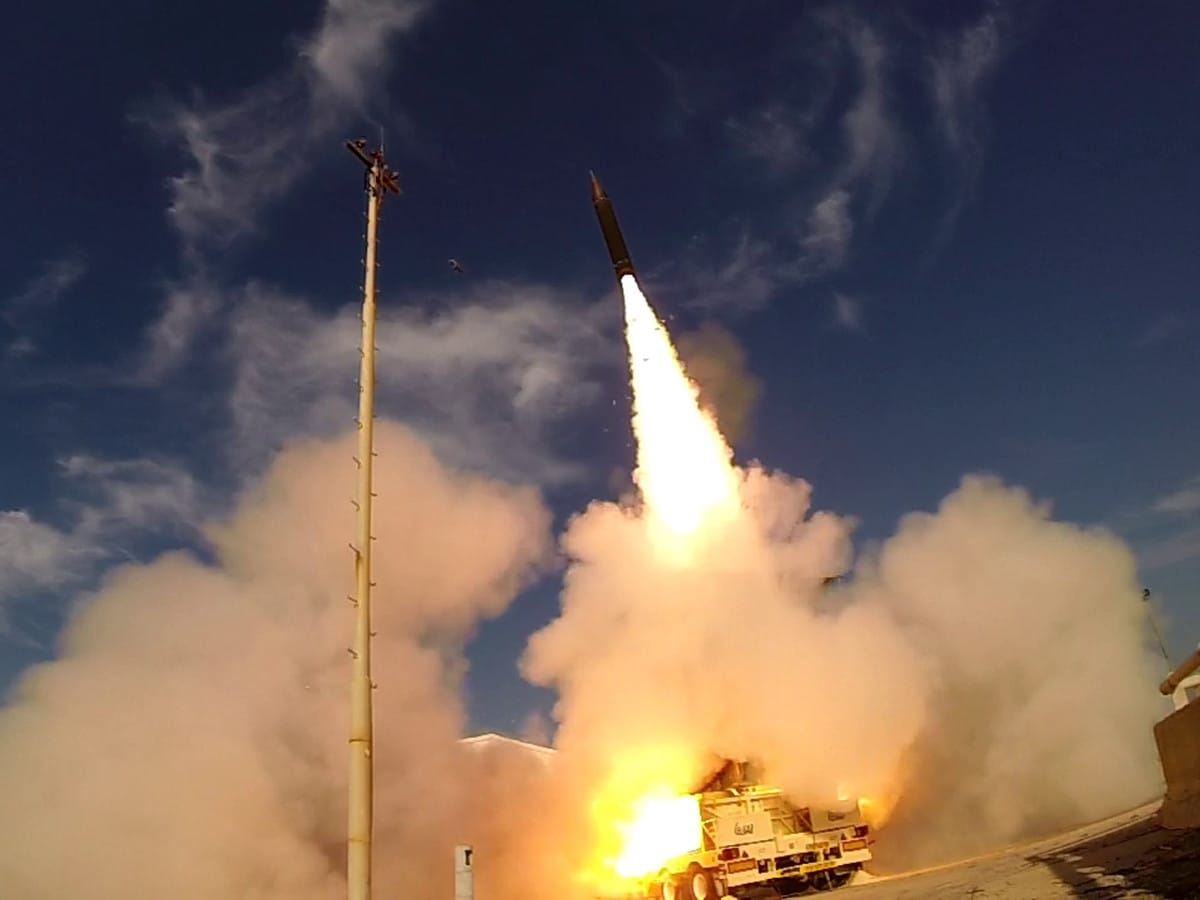- Tags:
- Japanese constitution / military / pacificism
Related Article
-

Zoom lecture about Kagawa Toyohiko, “the Gandhi of Japan” on March 30th
-

Japanese residents react to ruling that same-sex marriage bans are unconstitutional
-

Live Action “Girls Und Panzer”? Girls Dance And Wash a Tank in Promotional Video For Upcoming Movie
-

Treaty of San Francisco, cornerstone of U.S. Japan defence pact, turns 70 in September
-

Guns, Food and Booze at Akiba Base Shooting Cafe & Bar



It’s the last thing anyone needs right now: fears of a nuclear war. Nevertheless, news reports throughout September pointed at the possibility of an upcoming underwater-launched ballistic missile test by North Korea. Such a test would coincide with stalled nuclear talks between the nation and the United States and would be the first such incident in about a year.
North Korean analysts base their concerns on recent satellite imagery showing an increase in activity at the Sinpo South Shipyard, where the isolated nation builds submarines. The Center for Strategic and International Studies told Reuters that recent images showed vessels in a secure boat basin capable of towing a submersible test barge out to sea. According to the U.S. think tank, the activity was "suggestive, but not conclusive, of preparations for an upcoming test of Pukguksong-3 submarine-launched ballistic missile from the submersible test stand barge."
While there is doubt among experts, some hint at the possibility of a test launch during an upcoming holiday in the Communist state. Recently, formations of troops have been practicing for a major parade set to occur on October 10th. The date marks the 75th anniversary of the ruling Workers’ Party of Korea and may be an occasion for missile tests or unveiling new weapons by the military.
A Change to Missile Policy
If these concerns are borne out, they would underline the sentiment put forth by former Prime Minister Shinzo Abe, who recently stepped down this month. Prior to the September 17th election of Yoshihide Suga, the exiting Abe noted that Japan should look to bolster its ballistic missile defense system against threats posed by North Korea and others.
He warned in a statement, “I believe it is necessary to enhance deterrence and thereby further reduce the possibility of an attack against Japan by ballistic missiles and others.” He also responded to criticism claiming a new missile policy would be within the scope of the Japanese constitution. “Japan’s exclusively defense-oriented policy will not change at all,” he said.
Over his notably long tenure as Prime Minister, Abe made limited progress on revising Japan's pacifist constitution. The shortcoming may be due in part to LDP coalition partner Komeito party’s strong opposition to an offensive military expansion. Furthermore, under the insistence of other LDP members such as Suga, Abe opted to push a widely popular economic revival plan known as "Abenomics" during his tenure rather than focus on military expansion. Still, the former Prime Minister's recent remarks underline the LDP's urgency over revising the policy moving forward.
Article Nine and Japan’s Pacifist Constitution
Since the end of WWII, Japan has maintained a pacifist constitution which formally renounces the state's right to engage in offensive military actions. Originally imposed by the United States, Article Nine of the Japanese constitution declares that "land, sea, and air forces, as well as other war potential, will never be maintained." Nevertheless, The Supreme Court has upheld the nation's right to maintain the ability to defend itself, allowing for the Japan Self Defense Force (JSDF). Ostensibly, the JSDF is an extension of the national police force.
Regardless, in recent years calls to revise the constitution have been increasing among government officials. In 2015, a contentious bill passed by Japan's parliament marked a notable shift in policy. Despite censure motions by the opposition party, the bill allowed Japanese troops to fight overseas for the first time since 1945. The Abe-backed legislation effectively expanded the limits of Article Nine and represented the end of a ban on exercising power by the state.
The momentum has continued recently as Japan works to bolster its intelligence system and project power abroad by joining the Five Eyes intelligence coalition. Earlier in the year, Abe also sought to add a minor clause to Article Nine, which would explicitly recognize the JSDF's legitimacy. However, even in the final months of his reign, the public remained staunchly opposed to any changes.
The Path for Suga
As a longtime supporter of Abe, the military issue will likely remain front-and-center for the newly elected Suga. Indeed, the 71-year-old politician was quick to announce his revisionist support as he launched his candidacy for Prime Minister. Like Abe, he emphasized the importance of recognizing the JSDF.
More controversial, however, Suga is likely to push forward a contentious new plan to acquire cruise missiles which could be used in pre-emptive strikes. The move comes after the recent decision to cancel the Aegis Ashore missile defence system. Although Japan likely lacks the satellite technology to leverage the offensive system fully, its development would mark a fundamental shift in policy. It appears that Suga will have to decide if he is ready to face public scrutiny over the issue and perhaps wed his tenure to revising Japan’s pacifist constitution.